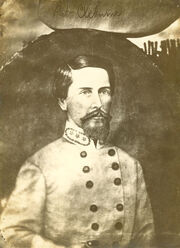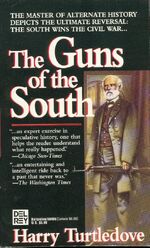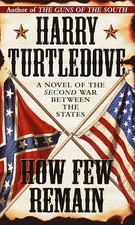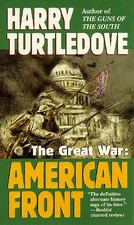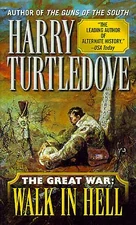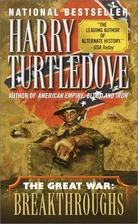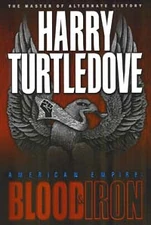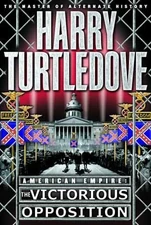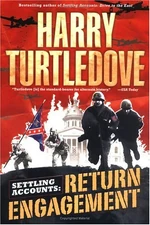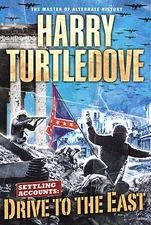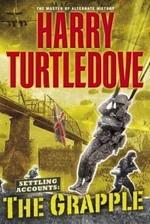| ||||||||||||||||||||||||
Patrick Ronayne Cleburne (March 17, 1828 - November 30, 1864) was a Confederate general during the American Civil War who was given the nickname "Stonewall of the West," a reference to the nickname of Thomas "Stonewall" Jackson.
Cleburne was born in County Cork, Ireland, into a family of the Protestant Ascendancy. He served for three years in the British army, then emigrated to the United States, where he settled in Arkansas and worked as a pharmacist and newspaper editor. He became a naturalized citizen in 1860 and gained acceptance in the society of his home town despite a high degree of nativist opinions. (In 1856 he had been wounded in a gunfight by a member of the Know-Nothing Party, whom he killed in self-defense.)
When the American Civil War began, Cleburne joined a volunteer regiment as a private, but his military experience led to his being elected captain of his company. He continued to rise through the ranks from there, ultimately becoming a major general, the highest rank attained by any Confederate officer not born in the United States.
He commanded a division of the Army of Tennessee during John Bell Hood's disastrous Franklin Campaign in 1864, and was one of many brigade and division commanders killed at the Battle of Franklin, Tennessee, on November 30. Cleburne and the others had been wrongly accused of cowardice by Hood before the battle and exposed themselves to reckless personal danger to clear their names.
In the winter of 1863-64, Cleburne, recognizing that the Union's superior manpower was rapidly becoming an insurmountable advantage for the enemy, circulated a letter in which he proposed the Confederate government offer emancipation to any male Negro slave willing to enlist in the Confederate army and fight side by side with white men. Predictably, this proposal was ignored by his superiors. However, the CS government adopted such a policy in the closing weeks of the war.
Patrick Cleburne in The Guns of the South[]
| The Guns of the South POD: January 17, 1864 | |
| Type of Appearance: | Posthumous references |
| Nationality: | Confederate States |
| Military Branch: | Confederate States Army (Second American Revolution) |
Patrick Cleburne's proposal to emancipate Confederate slaves in exchange for military service was not widely known in early 1864. Jefferson Davis and many in his administration, among them James Seddon, were determined not only to resist this proposal but to keep it from becoming public knowledge. Robert E. Lee, after careful consideration on first learning of Cleburne's suggestion, believed it would be preferable to losing the war. Davis agreed and said he would consider it if the situation ever became truly desperate, but not before that point. He hoped the arrival of the Rivington Men and the effectiveness of the AK-47 as a force multiplier would avert that evil day.[1]
Later, after the Second American Revolution, when Davis, Lee, and Judah Benjamin were discussing the problems of slave insurrections in the areas which had been controlled by the Federals for much of the war, Lee suggested that a ruthlessly violent prosecution of the counterinsurgency may not be the best course, and suggested that black men had, in this case and during the war, proved themselves to be as capable of the soldier's trade as white men. Davis asked whether he were becoming an abolitionist, a question not to be asked lightly of a Confederate. Lee did not say that he was, but, thinking of Cleburne, suggested that, if he were, he would not be the Confederacy's only general to do so.[2]
Patrick Cleburne in Southern Victory[]
| Southern Victory POD: September 10, 1862 | |
| Appearance(s): | American Front |
| Type of Appearance: | Direct |
| Nationality: | Confederate States |
| Military Branch: | CS Army (War of Secession) |
As veterans of the War of Secession, Patrick Cleburne and Stephen Ramseur were invited to appear on the platform in Richmond next to President Woodrow Wilson in August 1914, when Wilson announced the Confederate States was entering what became the Great War.
Both men were wearing the old-style gray army uniform; Reggie Bartlett concluded such aging lions could wear whatever they pleased.[3]
See Also[]
- Patrick the Cleaver - a fantasy analog of Cleburne in The War Between the Provinces series.
References[]
- ↑ The Guns of the South, pgs. 57-58.
- ↑ Ibid., pg. 255
- ↑ American Front pg. 32.
| |||||||||||||||||||
